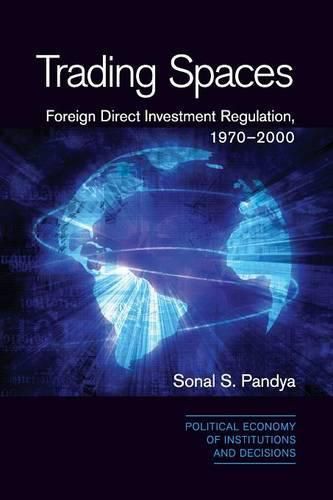Readings Newsletter
Become a Readings Member to make your shopping experience even easier.
Sign in or sign up for free!
You’re not far away from qualifying for FREE standard shipping within Australia
You’ve qualified for FREE standard shipping within Australia
The cart is loading…






This book is the first comprehensive study of foreign direct investment (FDI) liberalization. Political economy FDI research has long focused on how host-country politics influence the supply of FDI, or how firms choose to invest. By contrast, this book focuses on the politics of FDI demand: the sources of citizens’ preferences for FDI inflows and countries’ foreign ownership restrictions. Professor Sonal S. Pandya’s theory of FDI regulation identifies how FDI redistributes income within host countries, raises local wages, and creates competition for local firms. Empirical tests also emphasize the central role of multinational cooperations’ productive assets in shaping the politics of FDI. These tests feature an original dataset of annual country-industry foreign ownership regulations that spans more than one hundred countries during the period 1970-2000. This book highlights the economic and political foundations of global economic integration and supplies the tools to understand the growing economic conflicts between advanced economics and large emerging markets such as China and India.
$9.00 standard shipping within Australia
FREE standard shipping within Australia for orders over $100.00
Express & International shipping calculated at checkout
This book is the first comprehensive study of foreign direct investment (FDI) liberalization. Political economy FDI research has long focused on how host-country politics influence the supply of FDI, or how firms choose to invest. By contrast, this book focuses on the politics of FDI demand: the sources of citizens’ preferences for FDI inflows and countries’ foreign ownership restrictions. Professor Sonal S. Pandya’s theory of FDI regulation identifies how FDI redistributes income within host countries, raises local wages, and creates competition for local firms. Empirical tests also emphasize the central role of multinational cooperations’ productive assets in shaping the politics of FDI. These tests feature an original dataset of annual country-industry foreign ownership regulations that spans more than one hundred countries during the period 1970-2000. This book highlights the economic and political foundations of global economic integration and supplies the tools to understand the growing economic conflicts between advanced economics and large emerging markets such as China and India.